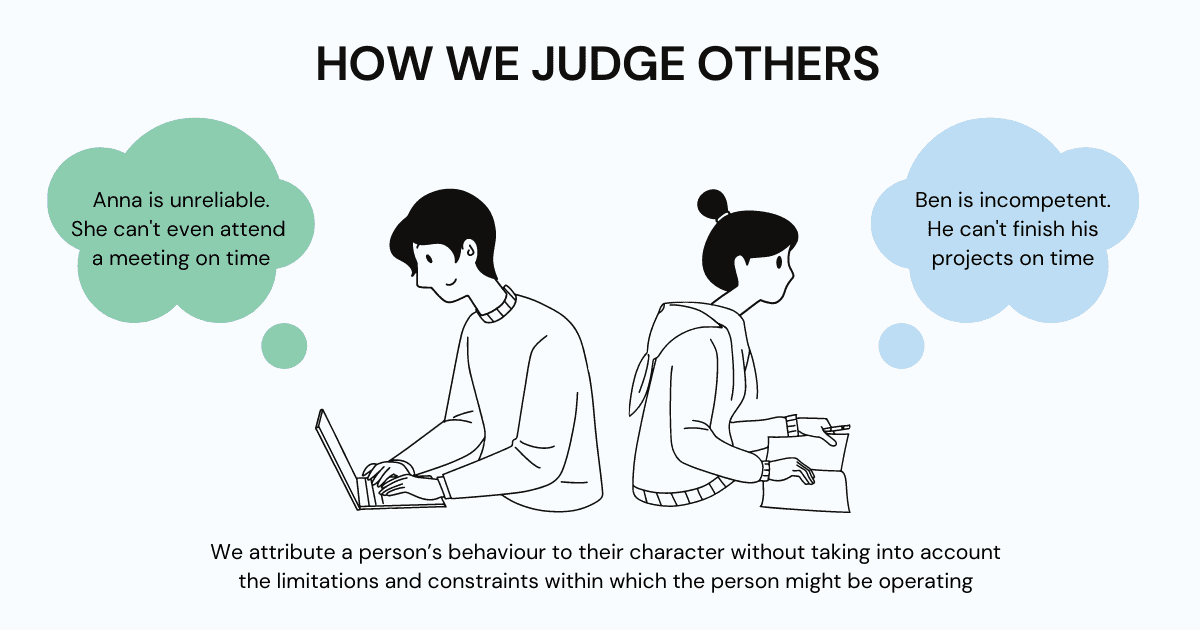Attrbutions
Attributions

Picture source: techtello

Think of the countless times you labeled someone at work as “lazy, boring, incompetent, stupid, irritating, biased, reckless, rude…”
The lens with which you see others makes all the difference – are you quick to judge or adopt an attitude to understand?
How your co-worker reacts to a situation is shaped by their own temperament, past experiences and the current circumstances. Their behaviour in one area does not reflect who they are as a person, what they value and even how they would be in another aspect of their work.
A missed delivery deadline does not make someone incompetent, mistake is not a sign of negligence and declining meeting invite is not an act of rudeness.
Yet, we assume that’s all there is to this story.
Snap judgments without careful consideration rules our workplaces and our lives. We are quick to stamp people as “this is who they are” without taking a moment to step back and analyse the situational factors that contribute to their behaviour.
The less we know about someone, the easier it’s for us to label them and then stick with those assumptions.
This cognitive bias called fundamental attribution error or attribution bias makes us attribute a person’s behaviour to their character without taking into account the limitations and constraints within which the person might be operating.
We jump to the conclusion that their behaviour is a reflection of “who they are” without taking time to analyse the situation that makes them behave in a certain way.
An attribution is the causal explanation we give for an observed behaviour. If you believe that a behaviour is due to the internal characteristics of an actor, you are making an internal attribution. For example, let’s say your classmate Erin complained a lot when completing a finance assignment. If you think that she complained because she is a negative person, you are making an internal attribution. An external attribution is explaining someone’s behaviour by referring to the situation. If you believe that Erin complained because the finance homework was difficult, you are making an external attribution.

